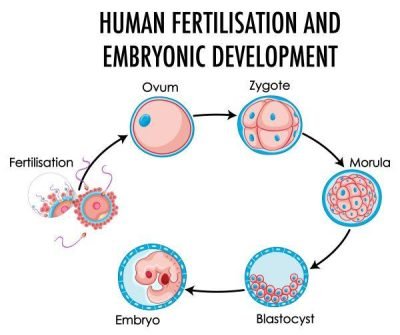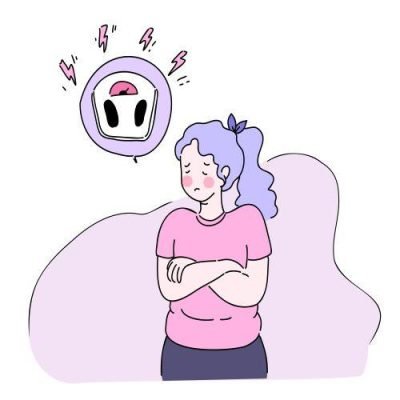5 Major Risks of Egg Donation: Quick Q&A: Is it harmful to donate eggs in the United States?
Don't be afraid to donate eggs in the US💖
The risks of donating eggs in the United States depend on how a woman’s body reacts to the medications prescribed by her doctor.
Egg donation is similar to egg freezing — both require a fertility specialist to monitor follicle growth and hormone levels through regular ultrasounds, and then administer the appropriate dosage of stimulation injections. This ensures that the retrieved eggs are of good quality and have a higher chance of successful fertilization and embryo development later on.
After egg retrieval, some women may experience abdominal bloating, swelling, pain, nausea, or vomiting, but these symptoms typically subside within 1–2 days of rest.
In very rare cases, some donors may develop Ovarian Hyperstimulation Syndrome (OHSS), a condition that requires medical observation and rest.

What is Ovarian Hyperstimulation Syndrome (OHSS)?
Certain hormones used during fertility treatments may overstimulate the ovaries, increasing the permeability of small blood vessels. This allows large molecules such as proteins and electrolytes to leak out of the bloodstream into the abdominal and chest cavities, as well as the lymphatic system. As a result, fluid accumulates in these areas, leading to **reduced blood volume, abdominal fluid (ascites), chest fluid (pleural effusion), and swelling of the limbs**. Ovarian Hyperstimulation Syndrome is considered a **gynecological emergency** and is categorized into three levels — **mild, moderate, and severe**. According to the Department of Obstetrics and Gynecology at National Taiwan University Hospital, the incidence of severe OHSS has dropped to below 1% since 2008.For more detailed information on **Ovarian Hyperstimulation Syndrome (OHSS)**, please refer to the National Taiwan University Hospital Department of Obstetrics and Gynecology website.
Debunking Myth 1 About U.S. Egg Donation Aftereffects: “Does egg donation harm your body? Is it bad for your health?”
Egg donation: Each month, a woman naturally produces eggs. During the donation process, the doctor simply retrieves the eggs before ovulation occurs — it’s not the same as pregnancy or miscarriage. Therefore, it doesn’t harm the body and does not cause any long-term side effects.
However, after egg retrieval, it’s important to replenish protein and drink coconut water to help reduce fluid buildup and promote recovery from anesthesia.

“Is egg donation harmful to the body?”
「“Not really!”」
Egg donation is similar to egg freezing or IVF (in vitro fertilization). The process uses ovulation stimulation injections to help existing eggs grow larger and healthier, making them more suitable for fertilization and embryo development later on.
The injection site for the ovulation medication is around the navel area, where there’s more body fat—this allows the medicine to be absorbed effectively. Under the doctor’s supervision, the dosage is carefully adjusted based on the donor’s hormonal response.
Some women may experience temporary bloating, slight weight gain, or hormonal acne during the stimulation phase, but these effects subside naturally once the medication is stopped and the eggs are retrieved.
Debunking Myth 2 About U.S. Egg Donation Aftereffects: “Will my menstrual cycle become irregular after egg donation?”
The relationship between eggs and menstruation:
Every month, a woman’s ovaries develop about 5 to 12 primordial follicles into primary follicles. Typically, only one of these will mature and release an egg during ovulation, though sometimes two eggs may be released.
If the egg is not fertilized by sperm during ovulation, it will naturally degenerate and be shed along with the uterine lining — this process is what we call a menstrual period.

Egg donation does not affect your future menstrual cycle. Just like how your body continuously produces hair and nails, your ovaries naturally generate new eggs every month. Donating eggs simply retrieves the ones that would have been released or discarded anyway—it doesn’t deplete your supply or disrupt your hormones.
In fact, during the egg donation process, women are usually prescribed birth control pills to regulate their menstrual cycle, ensuring it stays consistent. Therefore, there’s no such thing as post-donation menstrual irregularity caused by egg donation.
Debunking Myth 3 About U.S. Egg Donation Aftereffects: “Does egg donation cause infertility?”
Many women’s myths:

"Egg donation means donating my only egg to someone else, so egg donation will cause infertility, right?"
「Wrong, of course not!」
A woman releases about 400–500 eggs in her lifetime, with 1–2 eggs ovulated each month while the remaining follicles naturally degenerate. During the egg donation process, medications are used to help mature the follicles that would have been reabsorbed by the body, allowing multiple eggs—typically 10 to 50 per cycle—to be retrieved at once.
This means egg donation does not cause infertility. It doesn’t deplete your egg reserve or affect future ovulation. After donating, the ovaries simply need one or two menstrual cycles to rest before they return to normal.
Even women with blocked fallopian tubes can still donate or freeze their eggs, as long as their ovaries are healthy and can produce viable eggs.
Debunking Myth 4 About U.S. Egg Donation Aftereffects: “Will donating eggs make me lose my eggs faster?”

A baby girl is born with about 1 to 2 million primordial follicles (eggs), and by the time she reaches puberty—around ages 10 to 16—she still has about 300,000 to 400,000 remaining.
Each donation cycle retrieves only 10 to 50 eggs, and since women naturally release eggs every month regardless, donating eggs doesn’t reduce future egg supply or affect ovarian function.
Therefore, women who wish to donate eggs don’t need to worry—egg donation will not cause your eggs to “run out” faster, nor will it lead to any long-term reproductive side effects.
Debunking Myth 5 About U.S. Egg Donation Aftereffects: “Will taking ovulation injections for egg donation change my body or make me gain weight?”

Taking ovulation stimulation injections for egg donation is similar to the process used in egg freezing or IVF, involving hormonal medication to promote follicle growth.
Clinical studies have shown that some women may experience temporary hormonal fluctuations, such as mild weight gain or acne, due to the medication. However, these effects vary by individual and can be managed through proper dosage adjustments by the doctor.
These are short-term reactions — after the egg retrieval procedure, the body’s hormone levels naturally return to normal, and no long-term side effects remain from egg donation.
For more information, please refer to the Taiwan Health Promotion Administration’s article:
“Before donating sperm or eggs, understand the risks — Stop, Look, and Listen.”
You should be aware of these risks of donating eggs in the United States in advance!

Most women who choose to donate eggs in the United States are drawn by the high compensation.
In the U.S., legal and safe egg donation programs typically offer between $8,000 and $20,000 USD, depending on the donor’s qualifications and prior donation experience.
When selecting a clinic, it’s important to pay attention to the following key factors:
Must confirm:
- Are there any additional agency fees?
- Can I stay in the United States for the full 14 days?
- Is there medical insurance that covers the approximately 14 days between egg donation and egg retrieval?
- Have you ever had any discomfort from anesthesia?
- Is there anyone in your family who is infertile or has ever had ovarian cysts?
remind!
- Do not smoke, drink, or take marijuana or other prohibited substances
- If you take regular medication, you need to consult your doctor whether it will affect egg donation.
Since there are risks, why are there still girls willing to donate eggs in the United States?

Traveling to the United States for egg donation does involve certain risks and uncertainties, which is why U.S. clinics provide donors with compensation (allowance) as recognition.
This compensation covers the donor’s medical cooperation, discomfort from hormone injections, and serves as a thank-you gesture for helping intended parents achieve their dream of having a child — often followed by IVF and surrogacy procedures to ensure a healthy birth.
The U.S. is one of the most advanced countries in assisted reproductive technology, with doctors far more experienced in egg retrieval compared to many other countries, including Taiwan.
In addition, donors can travel and explore the U.S. during their stay — with free airfare and accommodation — while performing a meaningful act of kindness that brings hope and happiness to others.
Recommended egg donation in the United States: Global Egg Donor

Global Egg Donor is a legally registered U.S. egg donation agency with full transparency. It partners with Taiwan’s largest egg donation matching company, Baby Seeding, as well as several renowned reproductive medical centers in Southern California. The agency provides donors with safe accommodations and clear medical guidance throughout the process. Many donors who previously worked with other intermediaries have since chosen to partner with Egg Love due to its reliability and comprehensive support. In addition to collaborations with reputable fertility centers in the United States, Thailand, and China, Egg Love offers donors immediate assistance — from medical coordination to food, lodging, and local guidance — ensuring a comfortable and worry-free experience abroad.
Many egg donors are often eliminated in the first screening stage due to unsuitable photos.
To help with this, Global Egg Donor offers free professional photo sessions to ensure donors have high-quality images for matching purposes.
✨ Legal U.S. Egg Donation Recommendation:
Introducing Global Egg Donor Egg Donation Center 🙌🏼

Why Global Egg Donor?
Collaborates with the most international fertility institutions for egg donation
One-stop fertility services: U.S. egg donation, IVF, and surrogacy
Highest compensation for U.S. egg donors
Fastest egg bank matching process — no waiting required
Free accommodation provided
Full reimbursement for medical examination fees
Full reimbursement for airfare
Experienced 24/7 online support team
Dedicated WeChat and LINE teams to track progress
Personal medical consultation and assistance throughout the process


